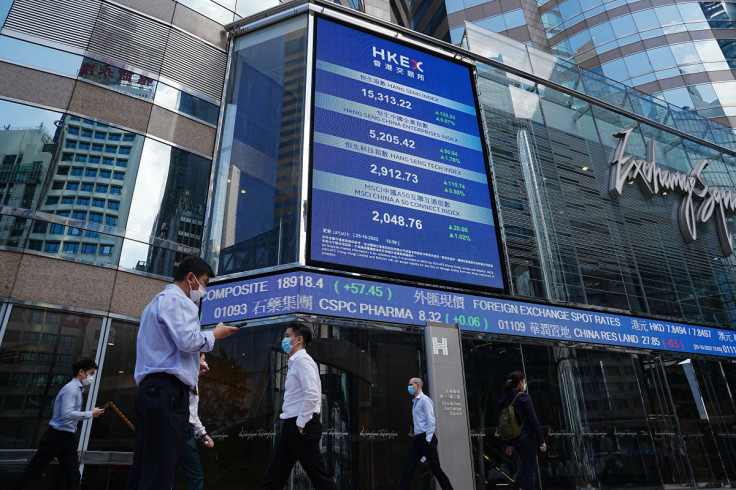Stocks Welcome U.S. Inflation Relief, But Wary Of Fed

Asian stocks rose on Wednesday, bonds were firm and the dollar nursed losses after data showed U.S. consumer prices barely rose in November, stoking hopes that inflation has peaked and interest rate increases will slow and eventually stop in 2023.
Nervousness about policymakers' next moves, though, kept the mood in check ahead of a Federal Reserve meeting later in the day and central bank meetings in Britain and Europe on Thursday. Investors are also turning watchful on China's reopening.
MSCI's broadest index of Asia-Pacific shares outside Japan rose 0.6%. Japan's Nikkei rose 0.7%.
Overnight Wall Street surged, before paring gains to leave the S&P 500 up 0.7% at the close. The dollar, which is falling from 20-year highs as U.S. interest rate expectations retreat, dropped broadly and sharply, while bonds rallied.
"Equities whittled their gains in the session," said Vishnu Varathan, head of economics at Mizuho Bank in Singapore, as investors chewed over some of the details in the inflation data and turned their focus to the Fed decision due at 1900 GMT.
"I suspect it was a bit of 'hang on, guys,' - next up is the (Fed) and maybe we want to take some profit and keep our positions trim."
The U.S. consumer price index increased 0.1% last month, 0.2 percentage points slower than economists expected, and in the 12 months through November, headline CPI climbed 7.1% - its slowest pace in about a year.
The S&P 500 was up nearly 2.8% at one stage, while the Nasdaq rose as much as 3.8% before closing 1% higher. S&P 500 futures rose about 0.2% in Asia.
The yield on benchmark 10-year U.S. Treasuries fell 11 basis points overnight and was steady at 3.4975% in early Asia trade. Two-year yields, which track short-term interest rate expectations, fell 17.4 bps.
The U.S. dollar fell 1.5% against the yen after the inflation data and was steady at 135.58 yen in Asia. The U.S. dollar index fell to a six-month low of 103.57, before steadying at 104.01. It is down more than 9% from a two-decade high made in September.
FED AHEAD
Futures pricing shows markets expect the Fed will slow the pace of hikes, but still raise its Funds rate target range by 50 bps to between 4.25% and 4.5% later on Thursday.
Much of the focus then falls on the "dot plot" chart of committee members projections about future rate movements, and the tone chairman Jerome Powell strikes in his press conference.
"There are now clear signs that inflation is softening, but it is still at elevated level," said Tareck Horchani, head of dealing, Prime Brokerage, at Maybank Securities in Singapore.
"The market wants to know if the Fed will change their stance on the dot plot," he said, with the median projection in September being for a peak in the Fed funds rate of around 4.6% next year.
Elsewhere in currency markets, the Australian dollar hit a three-month high of $0.6893 after the inflation data, before retreating a little bit to sit at $0.6829.
The euro, sterling and New Zealand dollar hit six month highs, and the euro last sat at $1.0637.
Oil was carried 1% higher with the broader mood, before trimming gains a bit in Asia with Brent futures last at $80.22 a barrel and U.S. crude at $75.02 a barrel.
Bitcoin got a bounce overnight, but was unable to hold onto gains above $18,000.
Cryptocurrency markets have been unmoved, but transfixed, by the arrest of FTX founder Sam Bankman-Fried, who was accused by U.S. prosecutors on Tuesday of misappropriating billions of dollars in customer funds.
(Editing by Simon Cameron-Moore)
© Copyright Thomson Reuters 2024. All rights reserved.




















